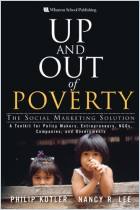Únase a getAbstract para acceder al resumen.

Únase a getAbstract para acceder al resumen.
Philip Kotler
Confronting Capitalism
Real Solutions for a Troubled Economic System
AMACOM, 2015
¿De qué se trata?
Capitalism contributes to poverty, income inequity and environmental damage, but it also can solve these and other problems.
Recommendation
Can capitalism be saved from itself? A laundry list of troubles besets the stumbling global economy, including uncertain business conditions, widespread income inequality, persistent poverty and environmental degradation. But professor Philip Kotler maintains that capitalism is still the most effective economic system and that it remains capable of changing its paradigm to increase performance, productivity, wealth and happiness. His solution is more self-awareness and social consciousness, delivered with a being-good-is-good-for-business approach. Kotler’s insight that low wages are not just unethical, but are also bad for business – since workers need higher pay to spur consumption and production – fails to address globalization’s role in this equation as fully as it might. His message deserves to be heard, though, and combines elements from the political right and left for a balanced, nuanced view of capitalism. getAbstract, which is always politically neutral, believes business leaders at capitalism’s cutting edge will find that Kotler offers ample food for thought.
Summary
About the Author
Consultant Philip Kotler is a professor of international marketing at the Kellogg School of Management. He is the author of more than 50 books.





































Comment on this summary